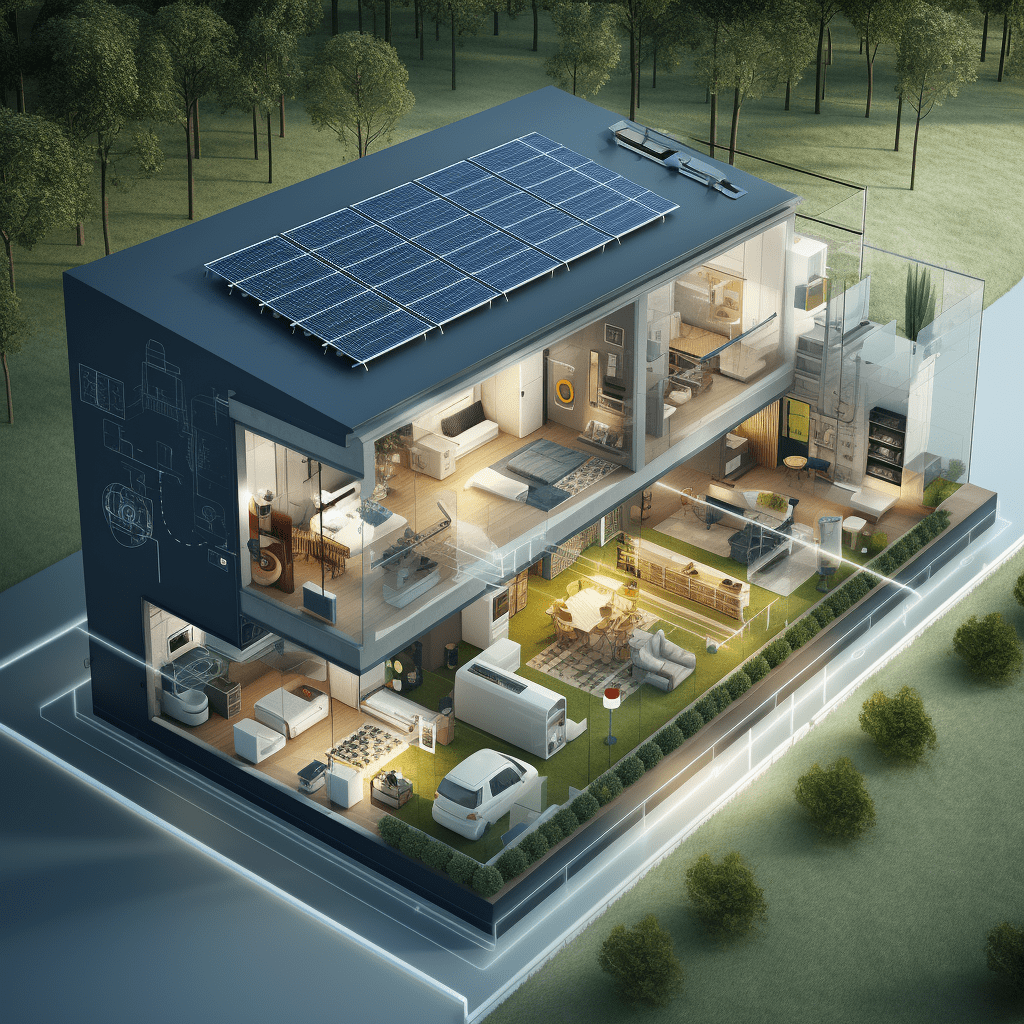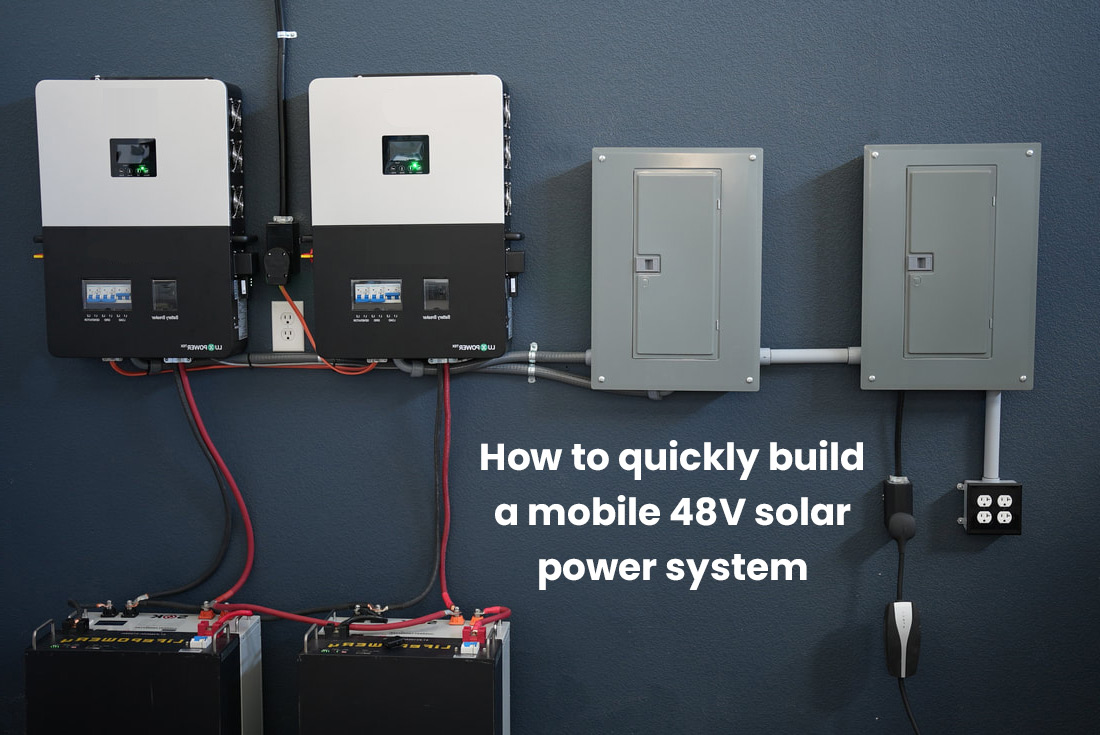Are you tired of being left in the dark during power outages? Whether it’s due to inclement weather or an unfortunate equipment failure, losing power can be a major inconvenience. But fear not! With the right home power backup solution, you’ll never have to worry about being without electricity again. In this article, we’ll explore your options for home power backup and help you determine which solution is right for you. Get ready to say goodbye to blackouts!

#post_seo_title
Why you need a home power backup solution
Power outages can happen at any time and for various reasons. Whether it’s a thunderstorm, strong winds or equipment failure, being without power is not only frustrating but can also be dangerous. Without electricity, you won’t be able to use essential appliances like refrigerators, heaters, air conditioners and even medical devices.
Losing power can also compromise your security system leaving you vulnerable to break-ins or other threats. Additionally, if the outage lasts for an extended period of time, you may have to deal with food spoilage leading to waste of money and resources.
Having a reliable home power backup solution ensures that you are prepared for these situations. With a backup generator or other alternative energy source in place, you’ll have peace of mind knowing that your family will remain safe and comfortable during an emergency.
Investing in a home power backup solution is not just about convenience; it’s about ensuring that your household remains functional even when faced with unexpected challenges. Don’t wait until disaster strikes; consider installing a backup system today!
What are your options for home power backup?
When it comes to home power backup solutions, you have several options available. Each of these options come with their own set of advantages and disadvantages. It’s important to consider your unique needs and circumstances before making a decision.
One option is generators, which are powered by gasoline or propane and can provide electricity for hours or even days depending on the size and fuel capacity. However, they can be noisy, require frequent maintenance, emit harmful fumes and may not be able to power all appliances in your home.
Another option is solar power systems which utilize panels that convert sunlight into energy that can be stored in batteries for later use. They are eco-friendly, sustainable and work well in sunny areas but can be expensive upfront.
Wind turbines or wind generators harness the kinetic energy from wind movement to produce electric current. These also require an ideal location with high windspeeds.
Microhydro Power uses flowing water like streams or rivers as its source of energy which requires a consistent water flow rate year-round near the house being powered
Ultimately, choosing the right home power backup solution will depend on factors such as budget, location, size of household & expected duration without grid-power among others..
Generators
Generators are a popular option for home power backup solutions. They can be fueled by gasoline, propane, or diesel and come in various sizes and types to meet different needs.
Portable generators are more affordable than standby generators but require manual setup during an outage. Standby generators, on the other hand, provide automatic backup power that kicks in within seconds of a blackout.
One potential downside of using a generator is the noise level they produce when running. However, newer models come equipped with noise-reducing features such as mufflers and sound-absorbing materials.
Another consideration is maintenance; generators require regular servicing to ensure proper operation during times of need.
Generators offer a reliable source of backup power for your home in emergencies. It’s important to assess your needs carefully before choosing which type of generator is right for you.
Solar Power
Solar power is becoming an increasingly popular option for home power backup solutions. This renewable energy source harnesses the power of the sun to generate electricity, making it a sustainable and eco-friendly choice.
One of the biggest advantages of solar power is that it can be installed almost anywhere as long as there’s sufficient sunlight exposure. Solar panels are also low maintenance, with no moving parts that require constant upkeep or replacement.
While solar power systems can be expensive upfront, they often pay for themselves over time through energy savings and potential tax incentives. Additionally, some utility companies offer net metering programs which allow homeowners to sell excess solar-generated electricity back to the grid.
If you’re looking for a reliable and environmentally conscious way to keep your home powered during outages or emergencies, installing a solar power system may be worth considering.
Wind Power
When it comes to home power backup solutions, wind power is a popular option for those who live in areas with consistent winds. This renewable energy source can provide electricity by harnessing the power of the wind.
Wind turbines are used to generate this electricity by converting kinetic energy from the wind into electrical energy. The turbines consist of rotor blades that turn when exposed to wind, and an internal generator that produces electricity.
One advantage of using wind power as a backup solution is its low maintenance requirements. Wind turbines do not have many moving parts, which means there are fewer components that could potentially break down or require maintenance.
Another benefit is its affordability over time. Once installed, wind turbines can produce free electricity for decades with minimal upkeep costs.
However, it’s important to note that not all homes may be suitable for using wind power as a backup solution due to location and local regulations regarding turbine installations.
If your home is located in an area with consistent winds and you’re looking for a reliable and sustainable backup solution, then exploring options in wind power may be worth considering.
Microhydro Power
Microhydro power is a lesser-known option for home power backup, but it has the potential to provide consistent and renewable energy. This type of power relies on the flow of water to generate electricity, making it an ideal solution for homes located near streams or rivers.
One major benefit of microhydro power is its reliability. Unlike solar and wind power, which rely on weather conditions, microhydro systems can produce electricity consistently throughout the year as long as there is flowing water available.
Another advantage of microhydro systems is their efficiency. They are capable of producing more energy per unit than even large-scale hydroelectric plants due to their ability to operate at lower heads (the vertical distance between the turbine intake and discharge point) with minimal environmental impact.
However, one drawback of microhydro systems is that they require a significant investment upfront in order to install the necessary infrastructure including turbines and piping. Additionally, determining whether your property has sufficient water flow may require professional consultation.
If you have access to a reliable source of flowing water on your property and are willing to make an initial investment in infrastructure costs, then a microhydro system could be an excellent choice for providing reliable home power backup.
Which home power backup solution is right for you?
When it comes to choosing the right home power backup solution, there are several factors to consider. First and foremost, you should assess your energy needs and usage patterns. This will help determine what type of backup system would be most suitable for your household.
For instance, if you experience frequent power outages or live in an area prone to severe weather conditions, a generator may be the best option as it can provide immediate power when needed. However, generators require regular maintenance and fueling which can add up over time.
On the other hand, solar power systems are a great choice if you’re looking for a long-term investment that is environmentally friendly. They come with high upfront costs but can pay off over time through reduced energy bills.
If you have access to flowing water on your property such as a stream or river, microhydro power might be worth considering. It’s highly efficient and reliable but requires a significant initial investment.
Wind turbines can also generate electricity in areas with consistent wind speeds of at least 12 mph. However, they too require significant upfront costs and may not be practical for urban households due to zoning restrictions.
Ultimately, the decision on which home power backup solution is right for you depends on various factors unique to each individual household such as location, budget constraints and energy needs.
Conclusion
In today’s world, where electricity is a fundamental need, power outages can be detrimental to your daily activities. Therefore, having an efficient home power backup solution is crucial for every household.
Generators are reliable and readily available in times of emergencies. While solar power systems may require significant investment initially, they offer long-term benefits by providing free energy from the sun. Wind turbines and microhydro turbines are also great sources of renewable energy that can keep your home powered during blackouts.
When selecting a home power backup solution, consider factors such as budget, fuel availability, location geography and climate conditions in your area.
It is important to note that investing in a reliable home power backup system will not only provide peace of mind but also ensure you never get left in the dark again!


